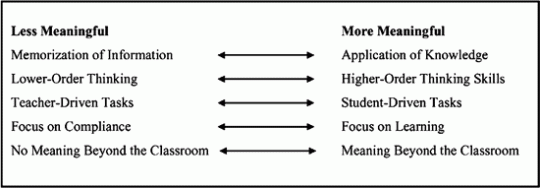An interesting moment occurred during our interviews yesterday—to conclude the interview a candidate asked all of us-
What we were most proud of at Central?
I was the closest person to the candidate, but I quickly told our counselor she could answer first. I must admit, it was not because I was being polite, it was because I needed some time to reflect on this rarely asked question. So, often, I tend to look at the data, evidence, facts, etc. and primarily concentrate on our areas that need improvement that I sometimes forget about the aspects of our school to celebrate. For this blog post, I would like to take that time to share what I am most proud of.
I am proud…
- of the teacher who courageously walked back through our doors after experiencing a life altering event to continue making a difference in her students’ lives.
- f the teacher who questioned her ability as an educator when all these changes were happening and found that as long as she used her passion for students, she could do anything!
- of the teacher who recently received unfortunate news, but found a way to put a smile on her face because she knew her students depended on that.
- of the quiet teacher who has such a big heart for all the women in his department that he will do whatever it takes to protect them.
- of the teacher who goes out of her way to build relationships with students and families.
- of the teacher who has put countless hours into her classroom to help improve student learning and her AR results are proof that it is working!
- of the teacher who knows how to bring laughter, energy, and compassion to her classroom and school.
- of our special education department for being so compassionate and determined to advocate for the underdog.
- for the teacher who understands the value in relationships, especially with our most troubled kids.
- of the teacher who wants all kids to become proficient readers and goes out her way to support the teachers.
- of the counselor who has made such a profound impact on our students.
- of the teacher who returned after many illnesses with a new appreciation for teaching.
- of the teacher who tries so hard to improve on her insecurities as a teacher—even if that means trying 30 different ideas to reach 1 challenging student.
- of the teacher who has put in many years and will leave a legacy here at Central, she will truly be missed.
- of the teacher who tries different ways to motivate our students and who will always be the best joke teller.
- of the secretaries who do so much more than secretarial work; they positively impact all that enter the office.
- of the teacher who advocates for the non English speaking student.
- of the interpreter who has helped us build relationships with diverse families.
- of the Speech Pathologist who wears many hats and wants to do what is best for our students.
- of the paraprofessionals who are so underpaid for all that they do!
- of the most dedicated school nurse who takes great pride in keeping our kids healthy.
- of a librarian who takes care of us all and instills a love for literacy in all!
- of the world’s best custodians that help keep our school clean and safe!
- of the recess monitors who go through more than we can even imagine.
- of all the teachers who have been frustrated, but still continue to show up for our kids.
- of the Art Teacher who does more than just teach art; she is a champion for all kids.
- of the Music teacher who is always willing to try new things and who always has a smile or funny remark to make.
- of the PE teacher who brightens up the office every morning with his greeting or sense of humor.
- of the Band teacher who instills her passion for music in all her kids.
- of a cafeteria manager and cooks who work so hard in preparing healthy meals for our students.
- of our students who deal with so much adversity, but show up each and every day.
- of our students who show improvement in behavior and academics.
- I am proud to be part of Central Intermediate!
If many of you were like me and became so consumed in what you need to improve and failed to take the time to celebrate, take some time to reflect on what you are proud of because it is an important part of the journey! 






